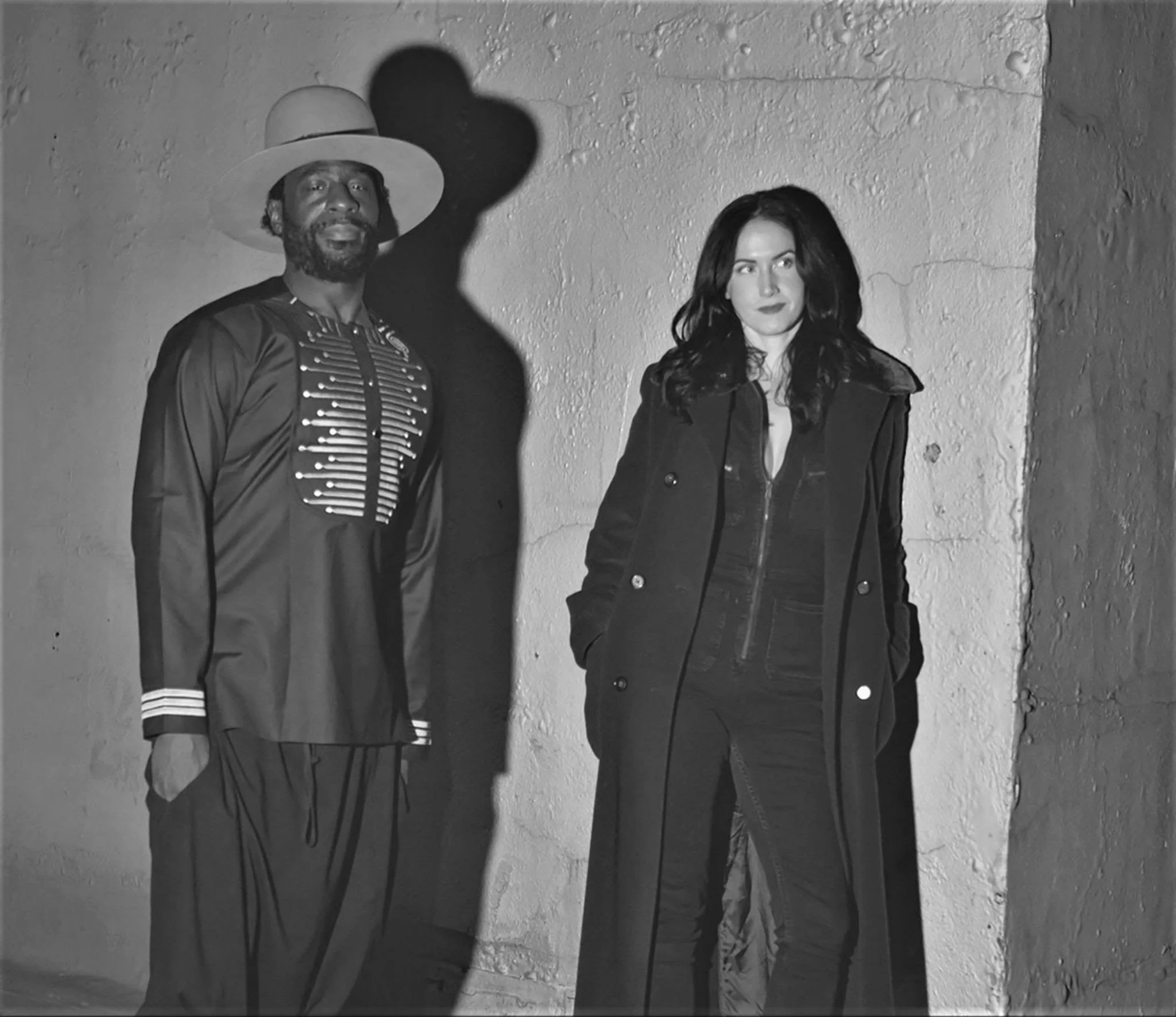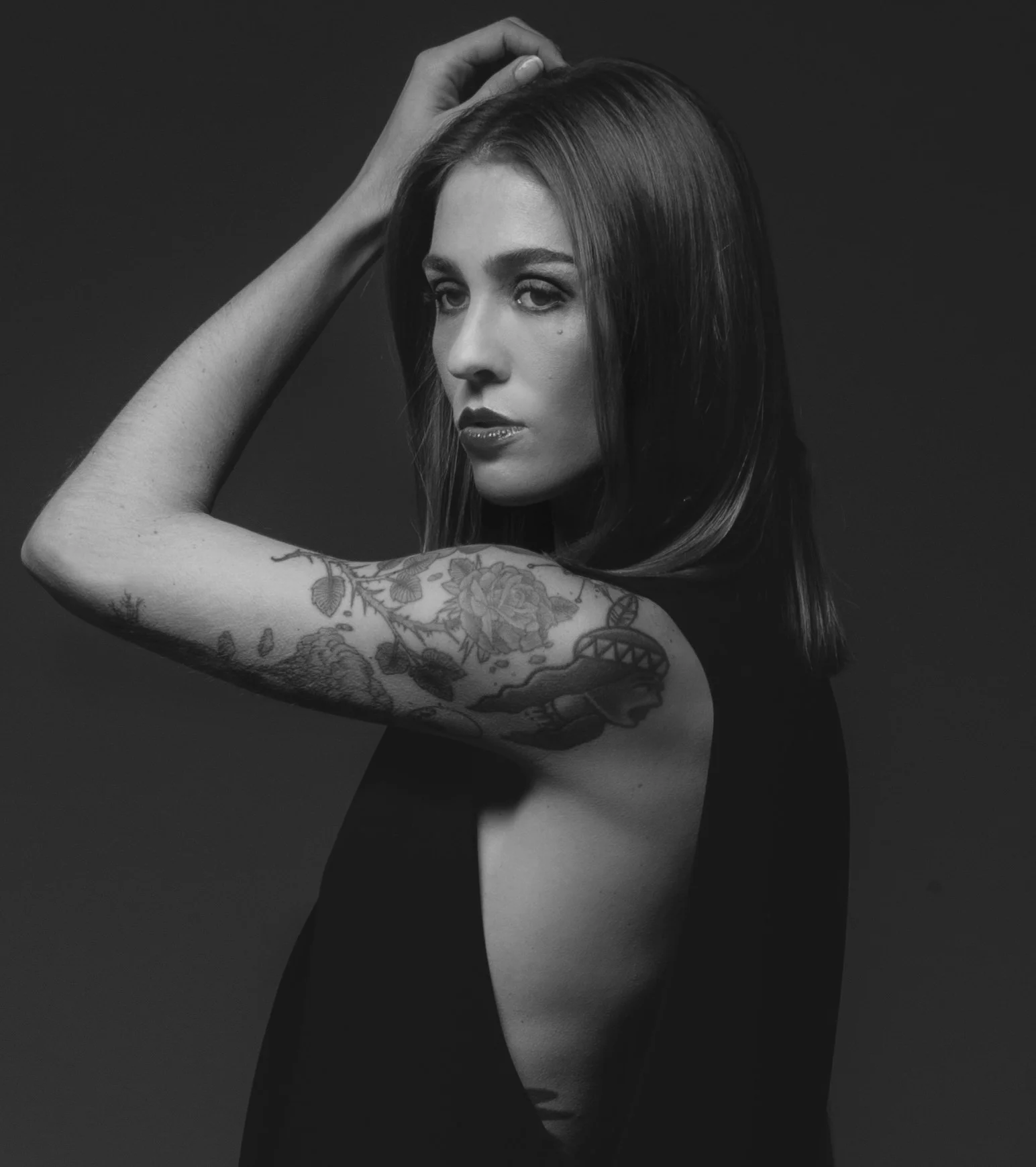PUBLIC DOMAIN freshen up some old tunes
Ray Angry and Katherine McMahon - photo by Sasha Charoensub
Public Domain is an ongoing music/art crossover collaboration by Grammy-nominated pianist and producer Ray Angry and multidisciplinary artist and writer Katherine McMahon. Their recent single “#AlcoholicBlues” was met with acclaim spanning NPR’s “New Music Friday”, ARTNET, and Under the Radar. They recently unleashed a brand new, star-studded track “#Toyland” featuring Ray Angry, Questlove, Black Thought, Marcus King, Pino Palladino, Liv Warfield and Ian Hendrickson Smith + Dave Guy of the Dap-Kings on horns.
Each Public Domain release navigates themes of intellectual property as a commodity, appropriation, identity, and the illusion of newness. Throughout the project Angry and McMahon expand upon expired copywritten material to sculpt a contemporary narrative about the cyclical nature of history while exploring generational shifts and the notion of ownership. Firmly rooted in the present, Public Domain synthesizes the existential dilemmas from the past, while critiquing the channels that are used to sell narratives and goods today.
Interview by Interlocutor Magazine
Katherine and Ray, you’ve known each other for a while, but you didn’t collaborate creatively together until the summer of 2020 when you both staged a performance art piece called “Free Clean Money” at Guild Hall in East Hampton, NY, in which $1 bills were doused with Lysol and given out to visitors, with Ray composing the score for the performance.
Could you both talk about how this project came together? Was there anything in particular about this piece that made you both realize you had unique creative chemistry which could be further cultivated into future collaborations?
Ray Angry: Wanted to do something that could change the narrative of all of the negative things happening in the world. When George Floyd died we realized that we wanted to continue that mission with more music.
Katherine: I think as creatives, we’re naturally curious and open-minded people who are always trying to push the nature of our respective practices. The idea for “Free Clean Money” came organically just from trying to be more experimental and open-minded about what art could mean for me and wanting to make a statement about a number of things, from contagion to inequality to the commodification of art. We were already in this space of creative experimentation and taking liberties with our artistic license, and Public Domain was born out of that same spirit.
“Free Clean Money” with Katherine McMahon - photo by Jessica Dalene
Katherine, after the “Free Clean Money” project, you got heavily interested in copyright law and studying works that are now in the public domain. How did you wind up becoming so curious about this topic, and how did the idea begin of incorporating songs in the public domain into a potential collaborative project with Ray?
Katherine: The ownership of ideas and intellectual property has always been sort of fascinating to me. I used to work at ARTnews magazine and would have to deal with licensing images as well as finding workarounds for using free imagery of paintings and artworks that were in the public domain. I found it fascinating that these images were free to use, in any way you wanted.
I’ve also always loved the ambiguity of the “fair use” doctrine. With Public Domain music, I felt that there was a lot more room for experimenting with skewing the narrative because you can’t see music. “Free Clean Money” was also in some ways about the fading relevance of the physical paper dollar bill in a world obsessed with cryptocurrency. But at the end of the day, a paper dollar is still money. With Public Domain music, these old songs tell stories with relevance that ebbs and flows with the times, and sometimes the stories get lost to time and fade into oblivion. But a lot of the stories are very relatable and I took particular comfort in this notion of having conversations with ghosts, who may help us better understand how we got where we are today.
The old songs that have been re-worked for the Public Domain project touched on issues that impacted people in many of the same ways that they still do a century later. The “illusion of newness” is an integral commentary to the Public Domain project, in the sense that the fresh content people crave is often just a reworking of age-old universal issues. Could you each talk about a particular song you’ve redone that personally surprised you with how topically relevant it is to your own present-day lives?
Ray Angry: All of them. They all come from a place of discussing identity and how we fit in this world, as well as how we are perceived.
Katherine: I wrote the lyrics to #AlcoholicBlues when I was hungover and self-loathing. I had been drinking way too much as a way to cope with anxiety from the pandemic, and honestly it’s hyperbolic but having this creative release as a way to cope really helped me get through a rough time. The original song was about prohibition and has this ragtime-y vibe, but I liked the idea of flipping the narrative and making it about a personal struggle through loneliness, depression, and relying too heavily on booze for comfort. The song was also meant to be about a self-destructive romance (with alcohol as a metaphorical character) with someone who only brings out the worst in you and you don’t know why you keep going back to them.
Ray, you’ve started a new label, Mister Goldfinger Music, with the stated purpose of maintaining ethical business practices and transparency that are so rare in the music business. What do you think some distinct challenges will be with maintaining a high level of integrity while still releasing work dependent on a capitalist system of promotion and distribution?
Ray Angry: The challenge will be finding more people whose level of integrity matches their talent.
The Public Domain project has drawn in an incredible amount and diversity of contributing musical talent to the new songs. Ray, you’ve worked with a wide scope of talent in the music world, while Katherine, your background is primarily in the visual arts. Could you both talk about the distinctive ways you’ve both bounced off each other creatively in bringing the Public Domain project to fruition?
Ray Angry: When you have something you’re trying to do it takes a lot of bravery and courage to see it through. We keep each other in good spirits because we know the message is important and this project needs to be heard and experienced.
Katherine: Though our backgrounds are quite different, the creative process felt quite seamless. Ray speaks the language of music so fluently, I obviously am not a musician but I have always been obsessed with music history and would pull out certain motifs and ideas and send them to Ray and see what he thought. The key I think was setting a conceptual groundwork for each song content and vibe-wise, and then Ray would take that and create amazing compositions as well as bring incredibly talented folks on board to be a part of these stories we’re telling.
The songs for the Public Domain project that have been released over the last few months will eventually be collected into Mister Goldfinger Music's first album release. Is there any general timeline or specific date set yet for the release of this album?
Ray Angry: We’re aiming for an end-of-summer/early fall release. Mister Goldfinger Music will also be releasing the Producer Mondays album around the same time which features some of the Public Domain artists as they collaborated live with us each week at my Producer Mondays show in NYC.
Ray Angry website | Katherine McMahon website
Check out all of our other coverage of innovative musicians and bands







